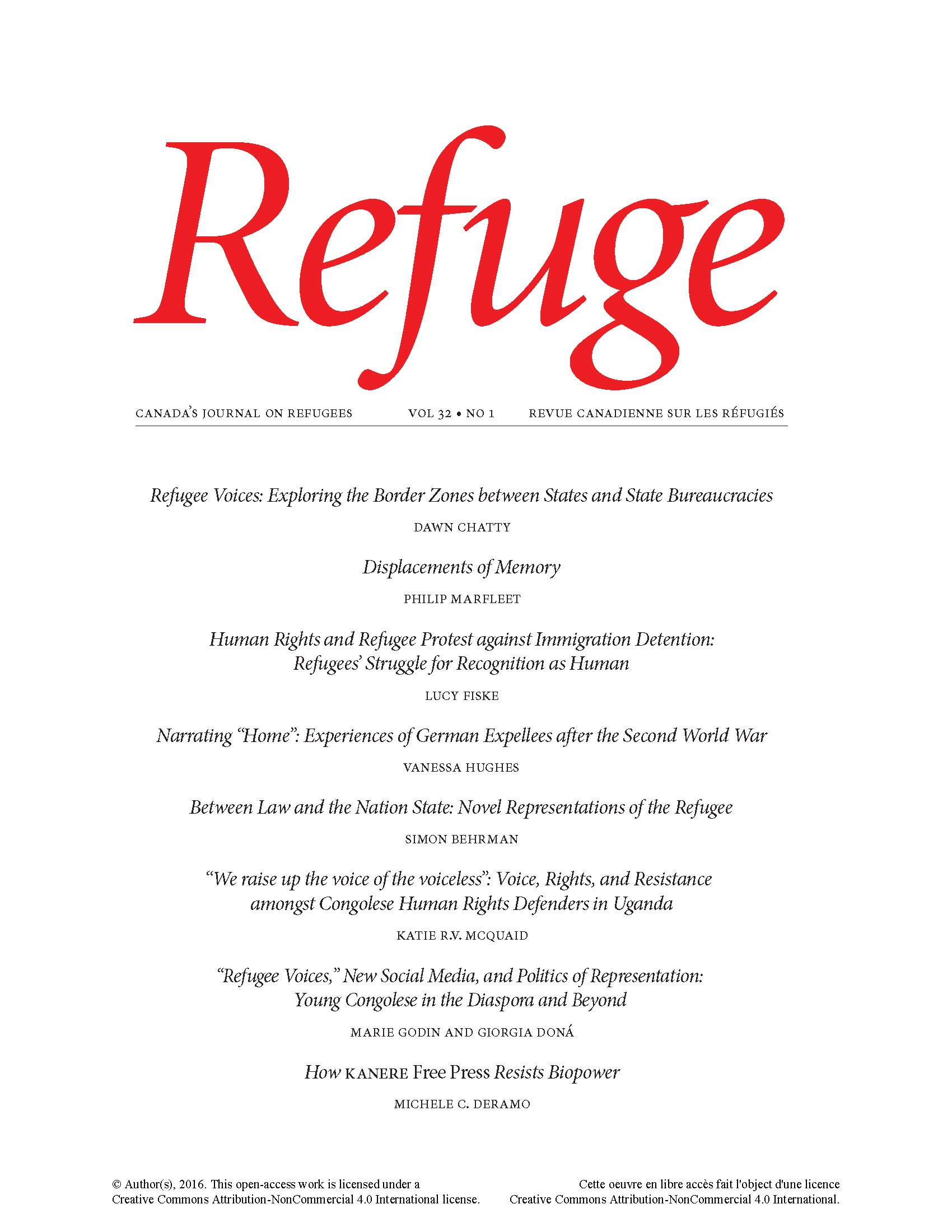Human Rights and Refugee Protest against Immigration Detention: Refugees’ Struggles for Recognition as Human
DOI:
https://doi.org/10.25071/1920-7336.40380Keywords:
Australia, immigration detention, refugee voices, human rights, dehumanization, protests, agencyAbstract
When detainees go on hunger strike or riot or occupy the roofs of detention centres, their actions are usually narrated by governments keen to discredit them and their actions as criminal and manipulative and evidence of their barbarity and difference. A secondary, counter-narration is provided by detainee supporters who explain the actions as evidence of detainees’ distress and deteriorating mental health. The voices of the actors themselves, people held in detention and taking protest action, are rarely heard in depth. Drawing on in-depth interviews with refugees formerly held in Australian immigration detention centres, and the works of Hannah Arendt, this article argues that the experience of immigration detention is fundamentally dehumanizing and that while detainee protest was aimed at attaining certain material outcomes, it also served important existential functions. The fact of protest was a rejection of a powerless state, a way for detained refugees to experience their own agency and, with it, restoration of some of the “essential characteristics of human life” and a means to use their reduction to “bare humanity” as a basis for insisting upon a place in the polis.
Metrics
Downloads
Published
How to Cite
Issue
Section
License
Copyright (c) 2016 Lucy Fiske

This work is licensed under a Creative Commons Attribution-NonCommercial 4.0 International License.
Refuge authors retain the copyright over their work, and license it to the general public under the Creative Commons Attribution-Non Commercial License International (CC BY-NC 4.0). This license allows for non-commercial use, reproduction and adaption of the material in any medium or format, with proper attribution. For general information on Creative Commons licences, visit the Creative Commons site. For the CC BY-NC 4.0 license, review the human readable summary.







